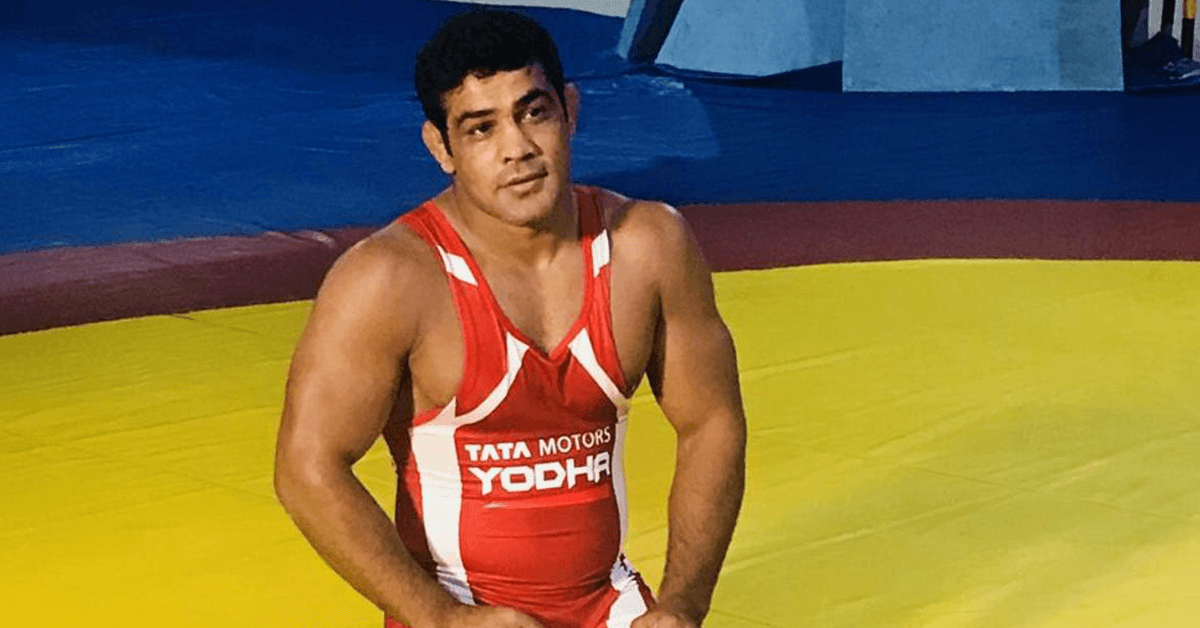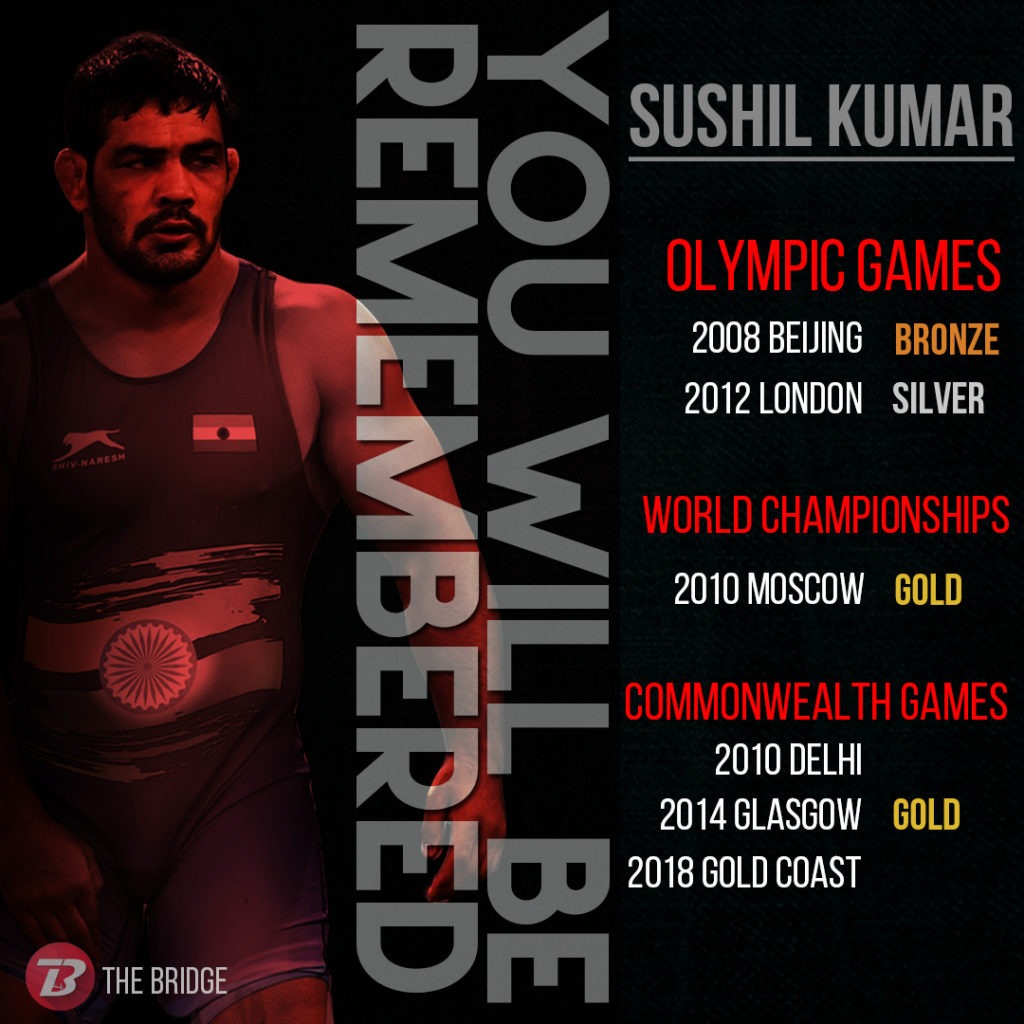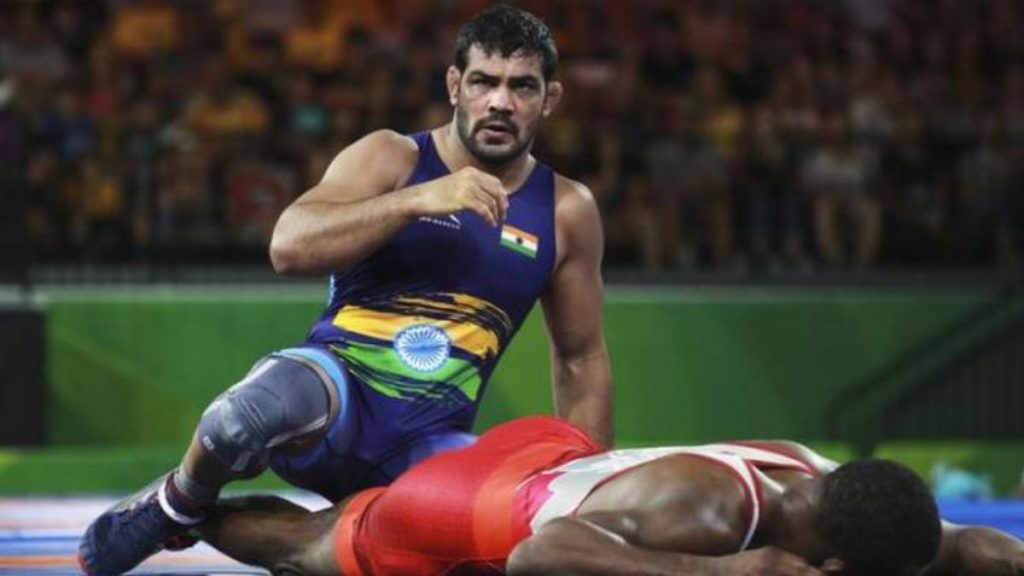2019 World Wrestling Championships
Did a muddled approach hamper Sushil Kumar's progress to the Tokyo Olympics?
Sushil Kumar might have made his intention of qualifying for the Tokyo Olympics clear, but prolonged absence from competitive events, along with a string of controversies, hampered his progress.

Sushil Kumar might have made his intention of qualifying for the Tokyo Olympics clear, but prolonged absence from competitive events, along with a string of controversies, hampered his progress.
After winning the Commonwealth Games gold last year, Sushil Kumar went on to lose in the very first round of the Asian Games. After a year-long gap, the grappler made a comeback to competitive wrestling this August in Minsk at Belarus, only to go down in 90 seconds to Asian Games champion Bekzod Abdurakhmonov. Determined to grit it out, however, Sushil started his preparations for Tokyo by sealing his World Championship berth in a controversy-ridden trials where he got the better of Jitender Kumar.
His presence at the Championships after eight years failed to bring glad tidings, though, as the Indian went down 9-11 in his very first bout.
The above paints a dismal record of two-time Olympic medalist, who has been in the news lately for his long absence from the game and for his questionable victories. At 36, his body is no longer the reservoir of strength, and his technical repertoire — that had involved takedowns and power moves — are no longer as menacing. At Nur-Sultan, age showed signs of catching up on Sushil, as the sportsman was tired out in the second period against Azerbaijan's Khadzhimurad Gadzhiyev.
Despite taking a strong 9-4 lead, the Indian failed to close the bout, losing seven points in a row, with his rival first pushing him out and then taking the lead with a gut wrench. By the end of the game, Sushil was reduced to just another wrestler who was toiling to book his ticket to Japan. Not a former world champion. Not a multiple medal winner. But rather a distracted player, riding high on past laurels, unable to get a grasp of the cruel reality.
Irregular participation in the 74-kg freestyle category
Sushil's major achievements came in the now-defunct 66-kg category. He won both his Olympic medals in the 66-kg. His World Championships gold in 2010, his Commonwealth Games gold that year at Delhi and almost all his Asian Championship and Commonwealth Championship medals have been won in his former weight division. After the global body changed the weight divisions following to the 2012 London Games, Sushil jumped to 74kgs, but never competed in a global event till his appearance at Nur-Sultan this week.
After his silver-medal efforts at London, Sushil first played an international tournament two years later, at the 19th International Tournament City of Sassri Senior held in Italy in 2014, where he won silver in the 74kg. His next event was the 2014 Commonwealth Games, where he won gold, and next took part in an international event only in December 2017 at the Commonwealth Championship, winning gold as well. These remain the only international events that the Haryana wrestler participated in over a five-year period.
Also Read: Why different selection rules for different sportspersons in India?

He bagged another CWG gold last year, but with the competition at the Commonwealth level not being the toughest, there remains nothing much to write about as far as Sushil's feats in the last seven years are concerned. His sporadic presence in events further infuriated the federation, who claimed that Sushil preferred staying alone and practising away from the national team in Georgia.
If Sushil, indeed did want Tokyo to be his perfect swansong, wouldn't he have, then, concentrated on playing at the international level, against the best wrestlers consistently instead of being away from the game for long periods?
The wrestling 74-kg freestyle wrestling division remains the most contested category, with the grapplers combining speed, power and agility to come out on top. Instead of being a no-show, Sushil could have systematically planned and built on his intentions by fighting in as many events and tournaments to get a grasp of the demands of the weight category.
Realizing his approach to the Olympics, the SAI dropped him from the Tokyo Olympic Podium Scheme last November, no longer enlisting him as a potential medal-winner at Tokyo.
Sushil, in many ways, might have taken his spot for granted, which has been evident in a number of incidents over the years. In a shocking step, he moved the Delhi High Court against Narsingh Yadav, who had won the quota for the Olympic Games in 2016, demanding the organisation of a trial bout to determine India's entry in the weight category. Sushil had not played at an international level since the 2014 CWG before the Rio Games, and in a daring step moved court against a player who had fought it out to earn what was rightfully his.
The same year, he was crowned the National champion after three rivals gave him a walkover — Parveen, Sachin Rathi and Praveen Rana merely walked up to the mat, touched Sushil's feet and proceeded to walk out in the quarters, semis and finals respectively. In the preliminary stages of the Nationals, Sushil looked rusty, and he could have easily been beaten but three straight walkovers raised doubts about the authenticity. Earlier this year, during the trials for the World Championships, his rival Jitender accused the 36-year-old of poking his thumb in his eye, which the referees ignored. Another case of finger twisting was ignored as well.
Rigorous training with a personal coach over match practice?

This April, Sushil hired Kamal Malikov, four years younger to him, as his personal coach, so the latter could help him out with physical training and grapple with him if needed. Almost 50 sessions with the Russian later, Sushil was happy with the progress the duo made together.
"No wrestler is perfect," says Sushil in an interview. "I am not perfect. I have not seen a wrestler who is perfect. We are all seeking perfection and train accordingly. So I have hired him. Technique needs to be sound and my defence needs to be strong."
Practising five hours a day in short intensity bursts, Sushil concentrated on building his power and endurance in the last few months, but in the process, could have lost sight of the bigger picture. For "seeking perfection and training accordingly" does not only involve spending hours on the training mats but taking part in tough events as well — losing or winning nonetheless.
Instead of taking on Jordan Burrough or Frank Chamizo of Italy, Sushil instead sweated it out separately, sidestepping competitions in the last one year, and only made a comeback to the game with months to go for the Olympics. While he has seemed to improve technically — he is moving swiftly and is getting into better positions of late — it is his lack of match practice at the highest level along with a clear vision that hampered his road to Tokyo.
With his long-held dream seeming a distant one and with age not on his side either, a blurry future awaits Sushi and the loss at Nur-Sultan might well have brought curtains on his career.

